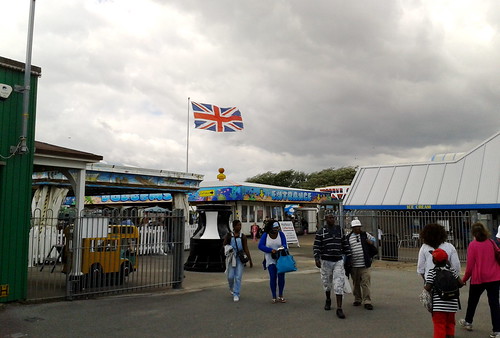Thursday, 15 August 2013
Death and destruction
My friend Don Cake speaks of violence as the ultimate breakdown of communication, but my argument with him is that I feel physical violence to be perhaps the most eloquent form of communication available to us. Experts vary on the subject of how much of human communication is non-verbal, with some saying it comprises 66%, and others nearer 80%. One could argue that the subjugation of women worldwide ultimately rests on the fact of their physical weakness compared to men. Like a wife beating husband, the state demonstrates its power over us in the most graphic way. It cows us and stamps out the futility of resistance. Psychological control follows physical domination, and is a much more effective means of control.
For the pen-penultimate post on here, I have a question.
On another dark day for the ordinary person in Egypt, why does the state always default to the violent repression of its people? I cannot pretend to know anywhere near enough about the complex web that comprises politics in that part of the world, but (so we are told) the current terrible death toll is among pro Morsi supporters. Presumably, when Morsi was still in power just a few weeks ago, the same soldiers then as now were pulling the triggers, letting off the tear gas, and swinging the batons with gay abandon as they laid into a different set of people. Surely, these soldiers are all mothers’ sons; perhaps fathers, brothers, nephews, cousins, maybe even friends to some? And surely the chances of having to exercise extreme restraint on someone you know and love increase as your actions take in wider and more diverse groups?
JG Ballard says that police violence against protesters is directly correlated with their boredom levels. In that case, we must assume that the psychopathic officer who smashed Iain Tomlinson to death must have been in the grip of an intense ennui. I have pondered the conundrum of the thug on the ground before, trying to understand the mentality of someone who is capable of meting out the terrible ‘punishments’ (at the behest of their paymasters) that comprise torture and crowd control. Those who served in the death camps, lined up in firing squads, or herding terrified men, women and children (CHILDREN!) into the Zyklon B showers; the IDF soldier who puts a young boy in his cross hairs and fires; the American marines who patrol Guantanamo Bay. How far from humanity is it possible to stray whilst still being a human? Yet, the fact that these goons are capable of such atrocities is key to the control that the state exerts.
One other consideration is the question why the powerful machinery of the nation, with its trained hoodlums and mechanised death-dealing equipment, should be so frightened of a few people standing in the street? The handbook of crowd control, though perhaps moderated to suit the level of violence (I believe that scenes such as those we have recently seen in Egypt would not happen in the UK, at least not yet, for example – just as the almost routine use of water cannon in many European countries is a matter of great debate everywhere here except Northern Ireland) to which a populace are used, seems to say: ‘Go in hard, go in early, and break their spirit.’ At its root we assume government fear of the terrifying power of the mob, able through sheer weight of numbers to topple the structures which hold our society together. Then, how do we fight? What equivalent to a women’s refuge is there for the downtrodden of the world? I suppose we can only win with ideas, with knowledge, and with communication.
Subscribe to:
Post Comments (Atom)




No comments:
Post a Comment